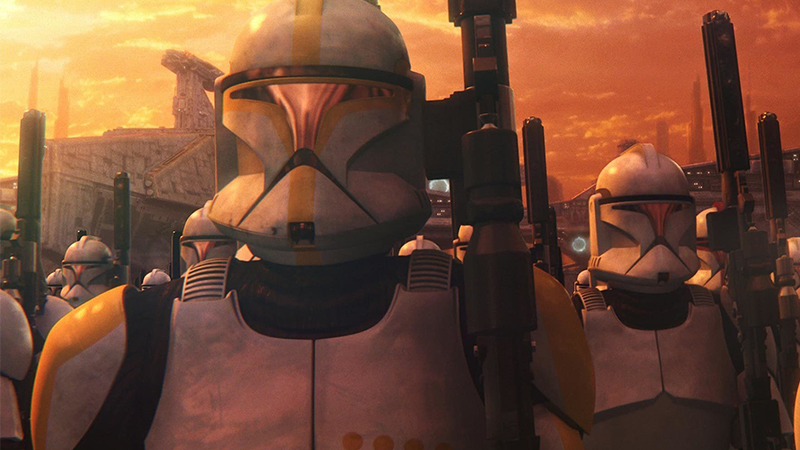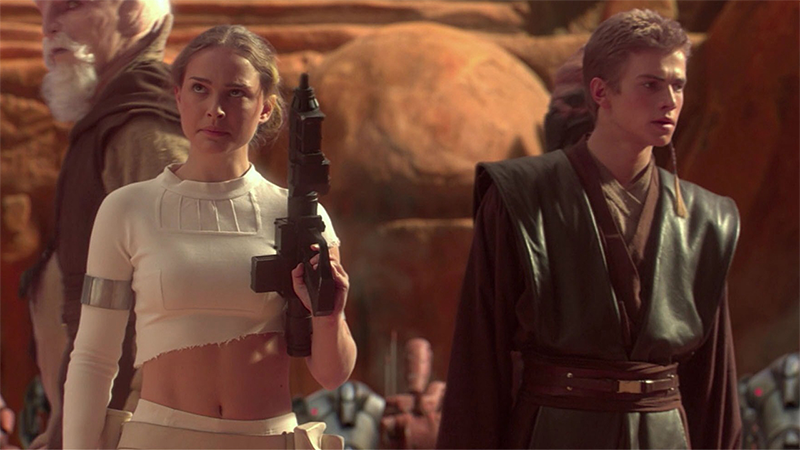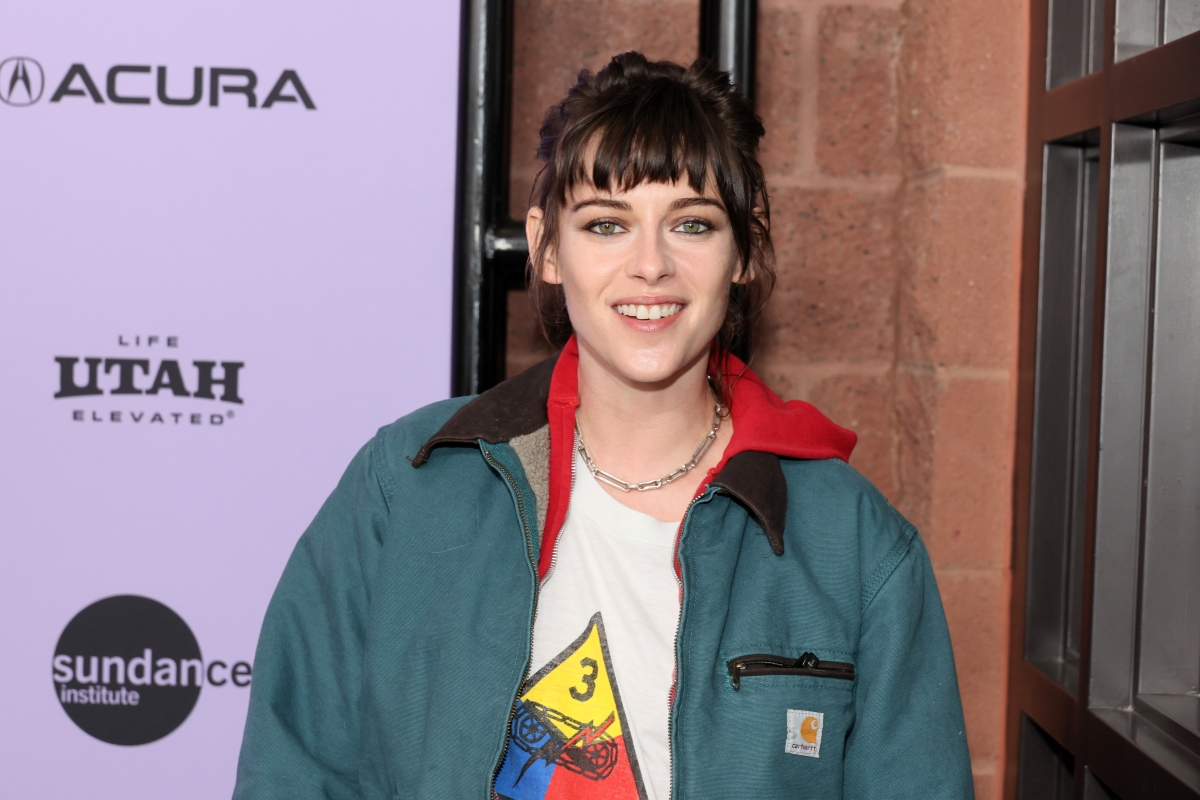The public’s reception to many movies changes after 20 years of hindsight. From would-be blockbusters that were unable to stand the test of time to hidden gems brought into the limelight, it’s almost impossible to guess a film’s legacy from its inception. However, there are few films whose reception has changed so drastically from when they were first released as Star Wars Episode II: Attack of the Clones.
When it premiered, Attack of the Clones was slammed by vocal critics and loud members of the public alike, derided as being the new worst Star Wars movie, with vitriol thrown in the faces of cast and crew alike. Now, several members of the cast are set to reprise their iconic roles for the upcoming Obi-Wan Kenobi limited series on Disney+, and the atmosphere couldn’t be more different. Fans are crawling out of the woodwork, and have quietly been doing so for years, to praise the actors, the score, the plot, and just about everything in the movie, even the CGI. While there are valid reasons for this change of heart, it also doesn’t excuse the behavior nor dim the light that the premiere shone on not just the Star Wars fandom, but pop culture toxicity as a whole.
MORE: The MCU’s Problem With Tackling Mental Health
Delving into the archives of the internet, I pulled a few choice quotes from critics, circa 2002, about the movie’s initial release. “A tale full of sound and fury, sucking the life out of cinema” and “It may be going too far to say it’s a movie at all” are harsh, but “falls to new depths of narrative incoherence, torturous banality, and acting incompetence” might be the sharpest of all. The most profane one, from a professional critic, read “Attack of the Clones is shit with a capital SH. It’s another digital cartoon with awful dialogue, weak performances.” It’s not hard to see why Ewan McGregor has publicly stated he almost quit the franchise, despite his role being one of two that was even semi-consistently praised, the other being the late Christopher Lee.
Franchise newcomer Hayden Christensen’s turn as Anakin Skywalker came hot off the heels of Jake Lloyd’s performance of the character in The Phantom Menace three years earlier. A performance, by a child, that was so reviled that several reviews of Attack of the Clones brought it up again to really twist the knife in as far as it could go. It’s no wonder that Jake Lloyd quit acting, after having his performance “poetically” described as “pure torture … like having my testicles in a vice grip.”
Unfortunately, Christensen barely fared better than his Phantom Menace predecessor, with critics attacking not just his performance, but him personally. “Dud” and “sullen and snotty” were thrown around, and “an annoying teenager who can’t act” was particularly critical. The romance between Christensen and Natalie Portman was lauded as one of the worst parts of the movie, with critics saying that they seemed “to fall around like clumsy mannequins without any facial expressions or real emotion.” His choice to leave Hollywood after the filming of the prequels ended is easily justifiable, with a handful of mostly independent features filling out his résumé until Obi-wan commenced filming.
While these people are paid to critique films and other media, there is a world of difference between tactfully pointing out that an actor’s performance wasn’t great and trying to massacre the actual actor themselves. Critics aren’t there to destroy the arts, but behavior like this crosses a line when it bypasses constructive criticism of a film and goes straight to the written equivalent of attacking a movie in a back alley with a box full of razor blades.
RELATED: Kumail Nanjiani Details His Obi-Wan Kenobi Character
The fandom surrounding the franchise was just as loud and mean as the critics, if not more so. From accusing the movies of being solely merchandise driven to suggesting that “true” Star Wars fans would dislike the prequels because they were “true” fans, to those who defended George Lucas at any cost, cast and crew be damned. “No excuses for them. They should be ashamed of themselves, not taking Lucas’ vision seriously” read one comment on a fan forum in 2002. So-called fans of the series took every chance to bash the movie into the ground, not caring who they took down along with it.
Fast forward to 2022 and people are now praising the prequels, Attack of the Clones among them, with folks either admitting they loved them as children or had thought they were fine movies all along. Many developed a new appreciation for them after the disorganized sequel trilogy released by Disney in the past decade, and others professed that the movie became better simply on rewatch.
While it’s nice that people are fans now, it also doesn’t excuse the damage that was done from the initial backlash to the movie. “They weren’t received very well. Every time they were released, they were being hammered. And that didn’t feel very good,” said McGregor in a recent interview, while also admitting he did not watch any of the prequels after release until it was time to prep for Obi-Wan Kenobi. He’s also been very vocal in his appreciation for his co-stars, particularly Ahmed Best, whose turn as Jar Jar Binks in the prequel trilogy was reviled, so much so that the actor has since publicly admitted he became depressed and considered suicide as an escape.
One would think after so many years, and seeing the change in opinion regarding the prequels, that the fandom would be less harsh in their criticisms of the continued Star Wars universe, but if anything, social media has made it worse. The sequel trilogy and standalone movie Solo were both slammed, with cast members Daisy Ridley, John Boyega, and Kelly Marie Tran receiving vast amounts of hate from viewers, mainly on the basis of gender and race. Even Rogue One, which was popular enough to launch the upcoming Andor spin-off, faced vocal detractors when first released just six years ago.
MORE: Ugly Sonic Perfectly Exemplifies Cameo Culture in Chip’ n Dale: Rescue Rangers
Fandom toxicity is ultimately a cycle of hatred that needs to stop. Being a “die-hard” fan doesn’t give anyone, amateur or professional critic, the right to attack people over a movie or show not being exactly what they want. Rather than celebrate the good elements – and there are always good elements – this toxicity encourages the tearing down of not just the media, but the people involved in it too. Driving a man to near-suicide, no matter how bad you think his character was, is inexcusable. To repeat these actions a decade later, now with misogynistic and racist undertones, is worse.
Of course, no one is ever going to love and agree with every single creative and artistic choice ever made about Star Wars, or any other media – that’s why it’s art. But hating something doesn’t make you more of a “true” fan, and using your professional platform to attack literal children and young adults who aren’t even old enough to drink alcohol yet is despicable. There are real people involved in making these things come to life, they don’t just pull pop culture out of a void; real people, with real feelings, who have to deal with real harassment and the real fallout from this mindless, contagious wave of hatred.
Two decades after the premiere of Attack of the Clones, people are now changing the film’s legacy to that of a fun prequel, a decent movie with a good cast and, yes, quite a few flaws. However, what we should really take away from 20 years of hindsight isn’t a change in the opinion of the quality of the work, but a change in the quality of the reception, and hopefully, a change in the rush to hate things so hastily going forward.












